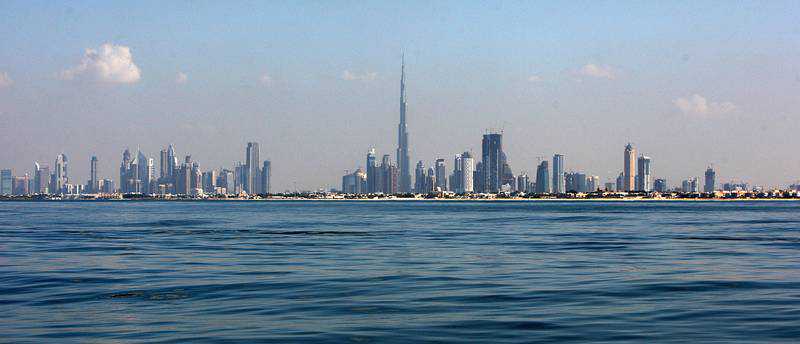Business activity in Arab world's two biggest economies continues to improve in August
05 September, 2021

Business activity in the non-oil private sectors of the Arab world’s two biggest economies continued to improve in August, with output growth driving the fastest rise in employment in the UAE since January 2018.
Saudi Arabia's IHS Markit Purchasing Managers' Index indicated continued momentum in the kingdom’s non-oil economy, albeit at a slower pace. The index fell to 54.1 in August from 55.8 in July. A reading above 50 indicates economic expansion while anything below points to a contraction.
Business activity in Saudi Arabia has steadily improved in the past 12 months, as its economy bounces back from the pandemic-driven slowdown.
The latest data indicated a sharp growth in new business in August, although as was the case with output, the rate of growth slipped from July.
"The non-oil economy went slightly off the boil in August, as output growth slipped to the weakest level for 10 months amid a slowdown in new business gains," David Owen, an economist at IHS Markit, said.
"Demand momentum is still largely on the upside, with nearly three times as many firms seeing a rise in new orders as those registering a fall."
Although pandemic-related challenges persist, domestic orders in August surged and the number of tourists to the kingdom increased, Mr Owen said.
The output index dropped, but still pointed to a solid rise in non-oil activity, which the companies surveyed attributed to an improvement in demand and the easing of travel measures.
New business in the kingdom continued to grow sharply over the month, albeit at a slower rate, partly due to a softer increase in export sales as the Delta variant led to a rise in Covid-19 cases in other parts of the world.
The rate of job creation was unchanged from July, with companies finding that the current output capacity was sufficient to complete existing work.
"Firms expect an improvement in domestic business conditions in the coming months", however, the unpredictability of the pandemic means that downside risks remain, Mr Owens said.
The headline PMI reading for the UAE reached 53.8 in August, slightly lower than the 54 it recorded in July. It was, however, the second-fastest improvement in the country’s non-oil private sector for more than two years.
With output requirements growing, non-oil private sector companies also increased their employment levels at the fastest rate since the beginning of 2018.
The August data indicated that business activity in the UAE grew at the quickest rate since July 2019, driven by an improvement in demand as the economy continued to recover with easing of pandemic-related restrictions.
New orders in the country rose for the sixth straight month, although the rate of growth eased slightly from July's recent high.
"PMI data signalled another robust rise in business activity across the non-oil sector in August, as demand continued to rebound from the pandemic," Mr Owen said. "This increasingly fed through into firms' hiring decisions, with employment numbers ticking up."
Source: www.thenationalnews.com
TAG(s):
